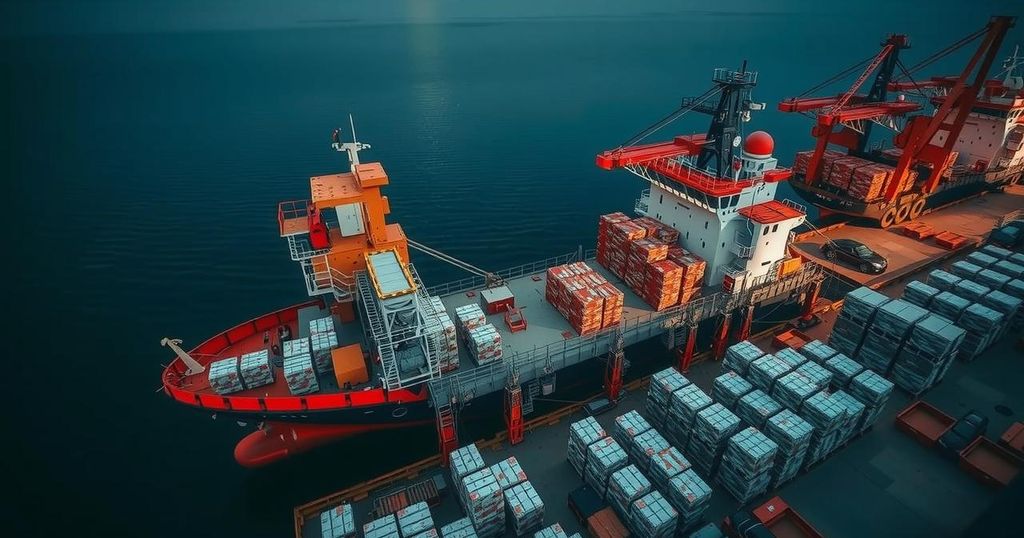The seizure of 43 metric tons of sodium carbonate at Chile’s Arica port marks a significant event in the Bolivian drug trafficking landscape. This precursor chemical, integral to cocaine production, underscores Arica’s role as a transit hub for drugs. The incident has prompted investigations into transport companies and highlights Arica’s customs challenges, particularly in relation to Bolivia’s drug trade.
The recent seizure of 43 metric tons of sodium carbonate at Chile’s Arica port highlights its increasing significance as a transit point for the Bolivian drug trade. This substantial quantity, which authorities believe could potentially yield an equivalent amount of cocaine, originated from Hong Kong and was destined for landlocked Bolivia. The chemical was misrepresented as tile adhesive by a transport company linked to Bolivia, prompting an investigation into the involved parties. The prosecutor, Mario Carrera, emphasized the enormity of this seizure, referring to it as one of the most significant in Chile’s history in terms of potential economic value. Sodium carbonate, widely used in legitimate industries, is a crucial component in cocaine production, where it is instrumental in extracting the drug from coca plants. Arica’s strategic location near Bolivia, combined with a customs framework established by a 1904 treaty, has turned it into an essential port for both the importation of precursor chemicals and the export of cocaine. The treaty grants Bolivian customs officials some level of control over cargo, which can complicate inspections by Chilean authorities. This recent seizure represents the largest haul of sodium carbonate in Chile and is part of a broader pattern of significant drug-related interceptions at Arica, which include previous confiscations of large volumes of cocaine and precursor chemicals. While Peru remains a major cocaine producer, Arica’s role in Bolivian trafficking is underscored by the fact that approximately 75% of the port’s cargo traffic is tied to Bolivia. The increased cocaine production in Bolivia, alongside reduced tariffs on Bolivian goods transiting through Arica, is likely to further facilitate drug trafficking operations.
Chile’s Arica port has emerged as a critical junction for drug trafficking due to its geographical proximity to Bolivia, a nation heavily involved in cocaine production. The history of customs agreements and trade treaties significantly influences the logistical operations of drug networks, allowing for reduced scrutiny over Bolivian cargo. Recent law enforcement efforts underscore the urgency of addressing this growing issue within the scope of international drug policy and regional security.
The seizure of precursor chemicals at Arica port not only highlights the port’s role in Bolivia’s cocaine supply chain but also raises significant concerns regarding the effectiveness of customs and border control in addressing drug trafficking. The ongoing complications arising from longstanding treaties and the port’s attractiveness to traffickers warrant comprehensive strategies to combat drug-related activities at this critical juncture.
Original Source: insightcrime.org






